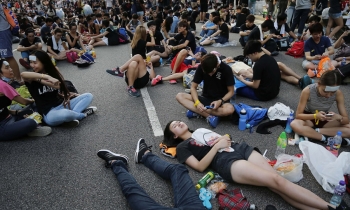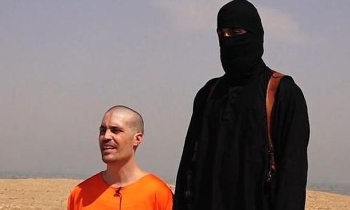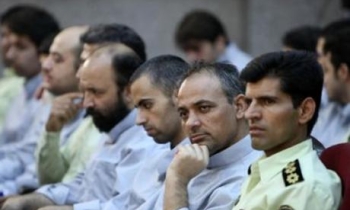The press freedom situation in Bulgaria has worsened considerably in the past two years. The murder of columnist and author Georgy Stoev in the centre of Sofia in April 2008 and a savage attack on Ognyan Stefanov, the editor of the Frog News website, by men using hammers in September recall the dark days of 1990-95 when gangland “mutris†(thugs) made it clear to journalists they were not to attack the foundations of a system that had integrated organised crime into the market economy.
Revelations in August 2008 that the State Agency for National Security (DANS) was tapping journalists’ phones highlighted the new techniques being deployed by politicians and organised crime, replacing the brute force of the “mutris†by more discreet forms of corruption and news manipulation.
There are no taboo subjects in the strict sense of the term in Bulgaria, but political and business stories are not easy to cover. Journalists still resist the pressure to censor themselves in the capital but they often capitulate in the provinces.
The findings are from a report by Reporters sans Frontières (RSF) on press freedom in Bulgaria, where investigative journalism and media pluralism are seriously threatened by organised crime and by different forms of pressure from political and business quarters.
Bulgaria is struggling to meet its commitments to its European partners, says RSF in a report on a factfinding visit two years after the country joined the European Union in January 2007. The hopes of democratisation born at the start of the 1990s have not all evaporated but their realisation depends on major reforms that are slow in coming.
“Press freedom is not progressing in Bulgaria,†says RSf. “Organised crime groups that have understood the advantages that can be derived from controlling news and information have extended their ascendency over the media. The grey economy’s hold over the press is now threatening news diversity and the survival of investigative journalism. We are disturbed by the situation we found on our visit to Sofia.â€
RSF continues, “Some journalists are resigned to censoring themselves, while others continue to actively resist business and political pressure. But Georgy Stoev’s murder last April and a brutal attack on Ognyan Stefanov in September have served as reminders of the risks run by those who refuse to let the press be transformed into nothing more than a communication tool in the service of private interests.â€
Bulgaria emerged from more than four decades of centralised news control and censorship when Todor Zhivkov’s Soviet regime collapsed in 1989. Twenty years later, the country has many national and regional publications. Trud and 24 Chasa (24 Hours) are the two most popular and widely distributed dailies. The daily Sega is growing in importance but has yet to pose a threat to the daily Dnevnik and the weekly Capital, the two newspapers of record.
The other newspapers are tabloids based on the German and British models. Express, Monitor and Politika are the most widely-read ones. Free newspapers such as 19 minutes and Za Grada are beginning to appear in Sofia.
Bulgaria has one public TV station: Chanel 1. It has few viewers and suffers from a lack of technical resources that prevents it from competing with the two main commercial TV channels: Nova TV, owned by the Modern Times Group (MTG) and BTV (owned by Rupert Murdoch’s News International). The Economedi group launched a new channel, Replay TV (RE:TV), in late 2008.
Behind this relatively conventional façade, the Bulgarian news media are subject to constant pressure. The influence of the parallel economy, organised crime and an often corrupt political class compound a lack of professional training.
As the 2008 Transparency International report confirms, Bulgaria is the EU’s most corrupt country. The subject is not taboo in the press. Maria Nikolaeva, who used to work for Politika and now works for Express, has done investigative reporting into corruption. But not without risks. She is used to getting phone and email threats. A few weeks ago, she got a letter from someone held in a Sofia prison telling her very clearly to stop taking an interest in his business. A crudely-drawn sword left little doubt as to his intentions if she did not comply.
Nikolaeva was shocked by the murder of Georgy Stoev, a columnist and author of several books on organised crime in Bulgaria. He wrote articles for Express and allowed it to publish extracts from his books. He was gunned down on April 7, 2008 in one of Sofia’s busiest squares.
Stoev was a former gangland member who had abandoned criminal activity and turned to writing about his underworld experiences, sometimes naming gang leaders. Nikolaeva said his murder signalled an increase in the level of violence. “Not longer ago, they disfigured journalists by throwing acid at them,†she told RSF. “Now they have moved to murder. It has not yet become generalised and I hope it stops there. But it is a very clear sign.â€
The methods of putting pressure on the local press, the RSF report says, have modernised. The fines for press offences are greater than the ones for money laundering. Local judges with close ties to big business and political barons do not hesitate to fine journalists 4,000 or 6,000 euros in libel cases. It is easy to understand that this does not encourage investigative reporting on the part of local journalists with an average monthly salary of 300 to 400 euros.
It is the government’s job, asserts RSF, to combat corruption and carry out the reforms required by the EU but the press can and should play a vital role. Some of the country’s journalists are actively trying to fulfil this role and to expose the system’s flaws. It is absolutely essential that their efforts receive support from European institutions. They also need support from the European media which provide little coverage of Bulgaria.









